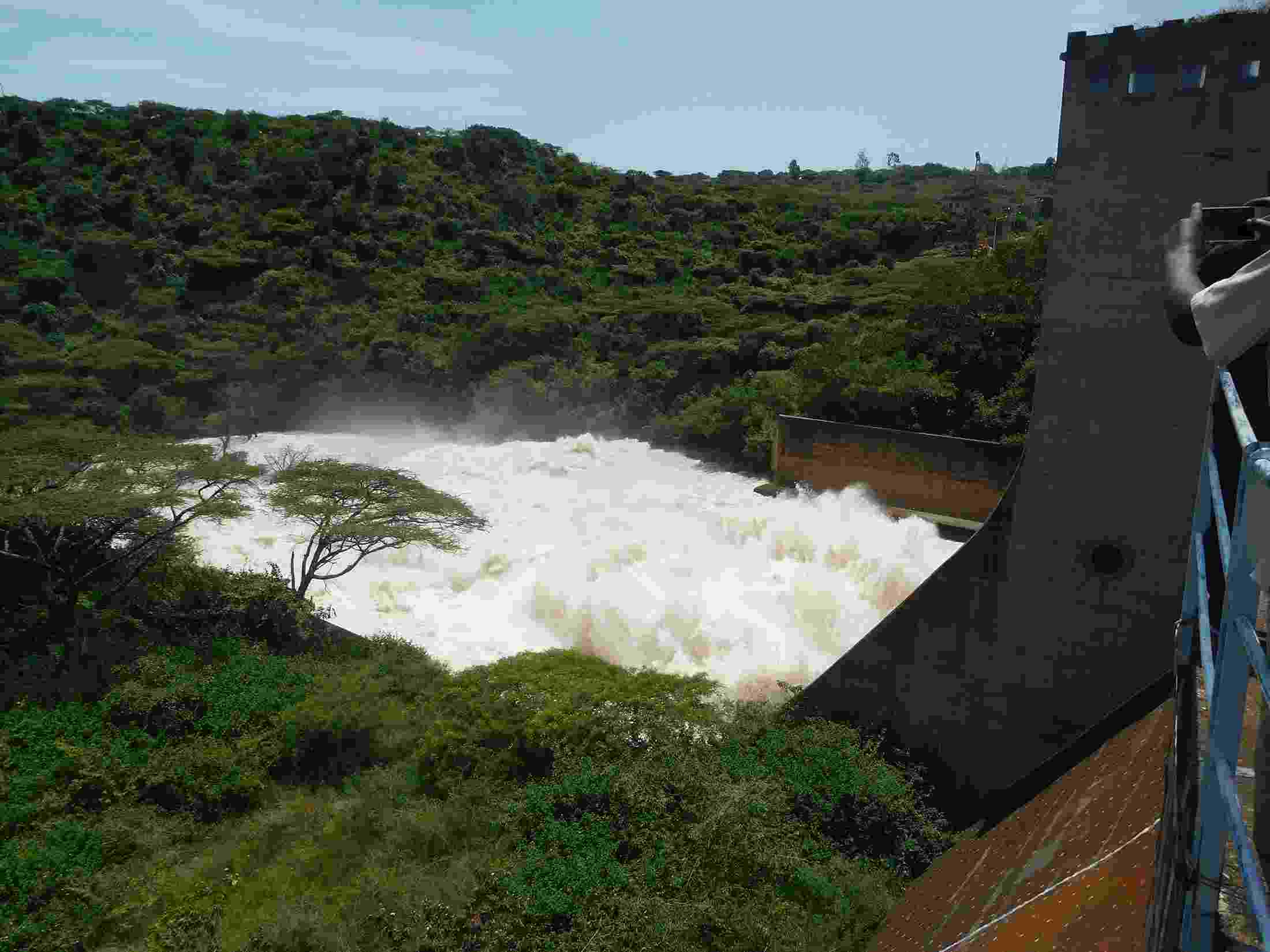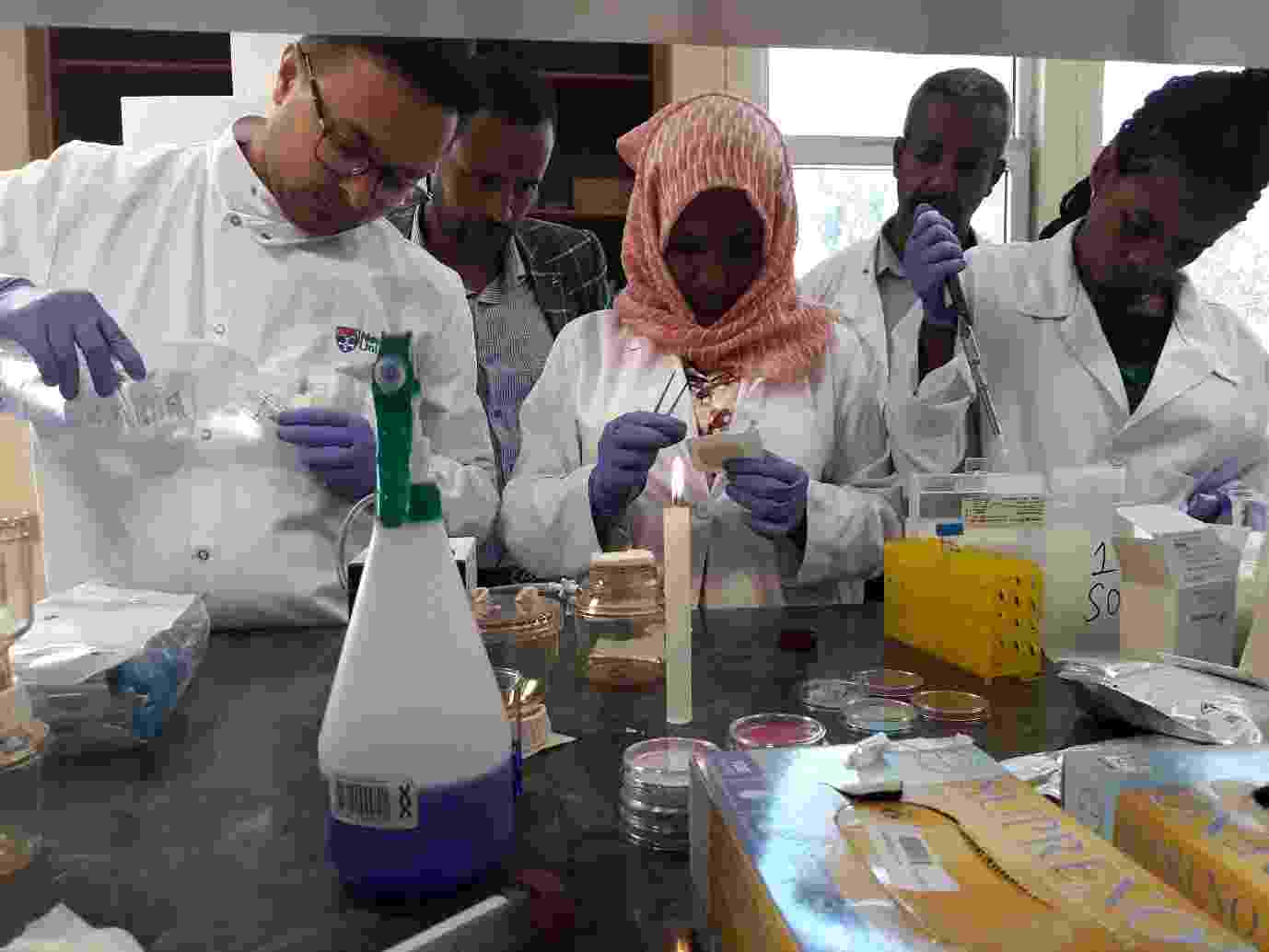Collaboratory case study | Ethiopia
Multi-sectoral capacity building for water security
01 September 2021


The Koka dam and reservoir across the Awash River
Overview
Water is an unstable and contested resource in Ethiopia, caused by many factors including rapid industrialisation and urbanisation (coupled with limited infrastructure development), the prioritisation of (water-intensive) agro-industry at the expense of safe water for domestic use and ecological restoration, and the government’s focus on economic growth.
Our Ethiopian Collaboratory is already seeing the benefits of adopting a systems approach within the central Ethiopian problemscape (the apex of socio-economic activities in the country). The Hub is working with stakeholders to build capacity across the sector (including communities) to realise a more integrated and holistic approach to managing water systems.
Creating a cohort of citizen scientists
The absence of regular monitoring hampers understanding of water quality and health risks in the Akaki catchment. The Hub has trained citizen scientists (community members living in the catchment) to (i) use dip tests to monitor water quality at key sites; (ii) measure river levels to understand low and high flow risks; and (iii) collect water-use data to quantify exposure to poor water quality and drought.
This citizen science programme has three key impacts: (i) fills the data gap for risk assessment, (ii) communities enhance their understanding of their environment; and (iii) communities are better able to engage in discussions about water management and help inform adaptation strategies. For example, Hub researchers established a link through our Collaboratory between the Legedadi reservoir operators (AAWSA) and downstream communities who can be negatively impacted by the operator’s practises. This has led to exchange of information and early warning notifications and flood risk information to reduce damages caused by reservoir operations. Currently, various aspects of this community based early warning system (CBEWS) for flood risk reduction are being evaluated, and community training is in progress. This work provides an opportunity to support communities to protect themselves from flood damage through a bottom-up approach.
Our work has shown well-trained citizen scientists can provide good accuracy and reliability of data. We are integrating this into our Water Hub Data Platform and within our Collaboratory we are exploring including this in official government data.
Building capacity among water services providers
Addis Ababa Water and Sewerage Authority (AAWSA) have a long-standing relationship with Hub researchers, who have trained several AAWSA staff members, including Jemila Mohammed. Jemila’s MSc – jointly supervised by IWMI, Addis Ababa, and Newcastle University – provided the necessary skills to take on the leadership role as Head of Wastewater Quality Control Laboratory on a major World Bank investment in a new laboratory to improve wastewater treatment for Addis Ababa, home to 5 million people.
AAWSA have also benefited from Hub research. Our ‘Laboratory in a Suitcase’ is unique in enabling molecular diagnostics in remote locations. This portable laboratory includes a memory stick sized DNA sequencing device, which includes advanced UK technology developed by Oxford Nanopore. This enables screening of more than one hundred different types of pathogens in a single analysis. Users can identify waterborne hazards cheaper, quicker, and easier than conventional laboratory screening. We trained AAWSA and fellow practitioners to enable them to deploy the ‘Lab in a Suitcase’ themselves. AAWSA have since built the evidence base to understand the link between water pollution, poor sanitation, and water quality in their local context. Mihret Mersha, AAWSA staff member, is currently investigating the removal efficiency of four wastewater treatment plants (WWTP) in Addis Ababa. The WWTP are operated by AAWSA, and Mihret aims to use the findings of the study to inform AAWSA to take necessary actions.
In May 2021, an interdisciplinary Hub team worked together to deliver training related to occupational hazard control to department heads at AAWSA, including the important Akaki and Kotebe wastewater treatment plants. This covered methods to identify, control, and assess hazards, and to select PPE. We subsequently developed best practice guidance for wastewater workers to protect themselves (including in the context of COVID-19). The guidance has been well-received by AASWA department heads and team leaders and was distributed to about 1000 staff in their offices and 16 treatment plants.
Moving towards integrated River Basin Management
River Basin Development Offices (RBDOs) in the Central Rift Valley (CRV), Awash, and Abbay face a water allocation problem. Hub research has provided critical understanding of hydrology, climate and land use. To understand the implications for water management, the Hub is conducting a Water Audit to create an inventory of water use (irrigation, water supply, livestock, industry) and infrastructure (dams, diversions, deep boreholes, hydropower, dykes). In June 2021, we ran training for 20 experts in the RBDOs who will use an app and questionnaires, developed by the Hub, to collect the data.
Our Collaboratory held a virtual consultation in May 2021, in which 25 participants from federal, regional and basin level institutions involving academia, government offices, and private sector discussed stakeholder perceptions of water systems. This led to groups being established for each RBDO to engage communities and other stakeholders on water policies e.g. buffer zones, irrigation charges, which will significantly improve community engagement in decisions.
Shaping national water policy
As well as building capacity from the bottom up, the Hub have worked with the central government to create a policy environment that supports water security outcomes and integrated management. This connection is so deep that His Excellency Dr Kaba Urgessa, Minister of Agriculture gave an opening speech at the Hub’s 2nd Assembly in Addis Ababa in February 2020. We have fed into national policies via several mechanisms.
Drawing upon our contribution to the UN Encyclopaedia of SDGs, we have recommended that multiple values of water (economic, social, cultural and environmental) be explicitly recognised in the Ethiopian National Water Policy to address value conflicts and manage trade-offs, and we have shown how appropriate soil and water conservation is imperative to sustainable agricultural practices. We are enabling this through our Collaboratory, which brings together key actors (e.g. Ministry of Agriculture; Ministry of Water Irrigation and Energy; Commission for Environment, Forest and Climate Change; NGOs; and academics) who have not previously worked so closely together. The Hub led the Technical Team designing the ‘One Plan One Report’ concept that was approved by the Basins High Council.
Hub researchers are leading or contributing to working groups on Water, Agriculture and Food Security; Water Resource Management; and Irrigation and Drainage to develop the Smallholder Irrigation Development policy.


Wastewater analysis training session for AAWSA staff
Next steps
The Hub will continue to build capacity within the Collaboratory and among stakeholders, including integration of the Water Audit with our research on climate, hydrology, and land use. We will deepen our links with communities build long-term capacity by training stakeholders on climate, water quality, and equity. Further work will update the Ministry of Agriculture’s Sustainable Land Management Knowledge and Information System to include water security’ as a key outcome indicator, ensuring future decisions consider water issues. Crucially, we will integrate our research from river basins to create a new perspective on the water allocation and interactions within Central Ethiopia.



